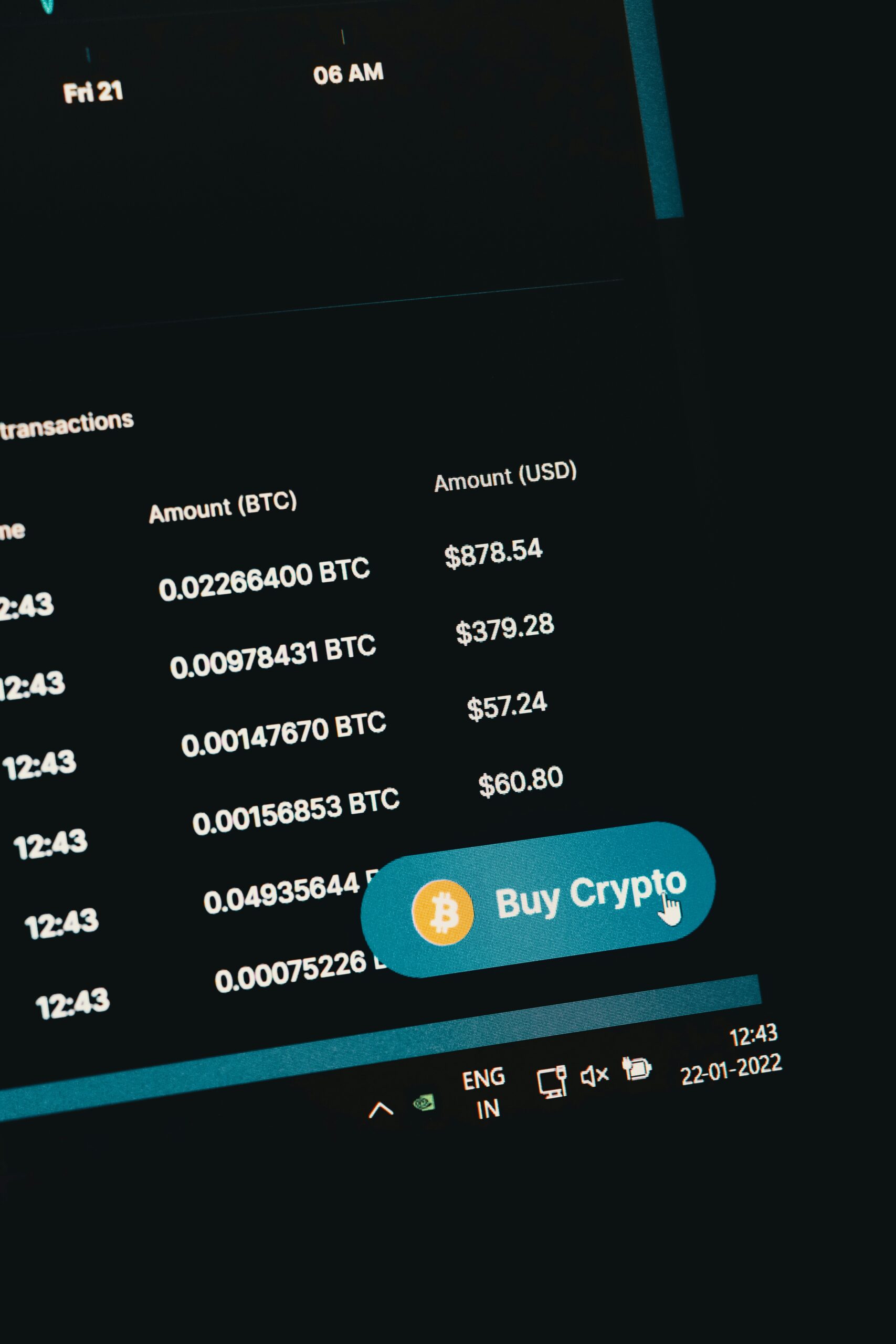I’ve talked a lot about different kinds of cryptocurrencies, their uses, crypto scams to be wary of, the risks of investing in cryptocurrencies, and the out of control SEC’s war against crypto saying most of them are securities, but there’s one thing I haven’t talked much about and that is where to get cryptocurrencies from. Well I’m going to talk about where you can invest in cryptocurrencies and they are called cryptocurrency exchanges and there are a good number of crypto exchange sites. I’ll be going over a few of them.
Crypto exchanges are like bustling marketplaces where you swap your everyday cash for digital coins. They’re where the magic happens if you’re stepping into the world of cryptocurrencies. Picking the right platform can feel like a daunting task, but it’s super important to find one that meets your needs.

Before diving in, it’s crucial to know that not all exchanges are created equal. They each have their own vibe, security measures, fees, and features. So, getting a good grasp on what you’re after is key.
Start by considering what matters most to you. Is it about having an easy-to-use interface, or you’re more interested in low fees? Are you planning to trade often, or are you in it for the long haul? Different platforms cater to different needs, and knowing yours will guide your choice.
Security should be at the top of your checklist. Always check what kind of protective measures an exchange offers to safeguard your assets and personal information. Look for things like two-factor authentication and encryption.
Another thing to think about is the range of cryptocurrencies offered. If you’re keen on trading altcoins, make sure the platform supports them. Some exchanges focus only on the popular coins like Bitcoin and Ethereum, while others offer a smorgasbord of options.
Also, take a peek at the fees. Every exchange has its own fee structure, and these can really add up, especially if you’re planning on doing a lot of trading. It’s worth spending some time comparing them to keep costs down.
Finally, consider the overall user experience. Reading user reviews can give you a feel for how the platform operates under real-world conditions. A platform that’s slow or prone to crashes can make trading a lot more stressful than it needs to be.
Choosing a crypto exchange is like finding the right pair of shoes; it needs to fit your style and comfort. With these tips in mind, you’ll be on solid ground as you step into the vibrant world of digital currencies.
Uphold: A Versatile Trading Platform
Uphold is catching many eyes for its unique approach, standing as more than just a crypto exchange. Its versatility is a big draw – you can trade not only cryptocurrencies but also precious metals and fiat currencies. This broad range makes it appealing for those looking to diversify their portfolios without juggling multiple accounts.

What really sets Uphold apart is its transparency. They’re all about straightforward pricing, with no hidden fees sneaking up on you. The platform’s interface is designed to be simple and clean, which is perfect for folks just getting started with crypto. Having everything laid out in clear terms makes it easier to navigate, especially if you’re not a tech wizard.
When it comes to trading, Uphold scores points for its innovative feature of allowing direct crypto-to-crypto trading. You don’t need to convert to fiat first, which could save time and transaction fees. Plus, it’s got this cool thing called “Anything to Anything,” letting you swap between whatever assets you fancy.
But no place is perfect, and Uphold does have some room to grow. One area where users have raised eyebrows is the customer support. It’s decent but could be more responsive, especially for those moments when you need answers fast. And while it’s user-friendly, some advanced traders might find the tools a bit basic compared to platforms offering more sophisticated trading options.
Still, for many, Uphold is a breeze to use, with the added perks of supporting various assets. It’s a solid choice for those new to the game or anyone looking for a one-stop shop for their trading needs. Just make sure you weigh the pros and cons based on what you’re looking to do in the crypto world.
I haven’t had to use their customer service so far which is a good thing in my case. In my previous article, I did talk about something that recently happened with one of the crypto’s I held on Uphold. It dropped in value really fast and that is because Uphold decided it was no longer going to be listed on their exchange.
Fortunately I was able to withdraw it to a cold wallet, but Uphold also gives you the option of converting into fiat currency or trade it towards other crypto before it is completely removed from your portfolio. Now in some cases, they may not let you remove it for from their exchange for whatever reason, but they’ll give you some other options if that happens so it’s definitely something you want to pay attention to if you decide to use Uphold.
I really do like Uphold and right now, I hold the majority of my cryptos there. I’ve been able to invest and withdraw pretty easily there and their security is really good which is something that you definitely want when searching for a crypto exchange to use.
Coinbase: The American Giant
Coinbase is the big player in town, known for making cryptocurrency accessible to everyday folks. Founded back in 2012, it quickly became a massive hit, drawing in users with its easy-to-use platform. It didn’t take long before it became the largest cryptocurrency exchange in the United States, a feat it’s maintained thanks to its focus on providing a seamless experience for users.

One of the big selling points of Coinbase has always been its simplicity. If you’re new to crypto, you’ll appreciate how intuitive the platform is. It’s set up to be beginner-friendly, with straightforward instructions and a clean interface that keeps the confusion at bay. Getting started is pretty smooth, with a sign-up process that doesn’t require you to jump through a lot of hoops.
In terms of security, Coinbase is known for taking it seriously. They store the vast majority of digital assets offline, in cold storage, safeguarding them against potential hacks. Plus, with insurance coverage for digital assets held online, they offer an added peace of mind to users, which is a huge deal if you’re worried about the safety of your investments.
But it’s not just newcomers who find value in Coinbase. The platform offers advanced features for experienced traders as well, like Coinbase Pro, which not only provides more trading tools but also comes with lower fees. Regular users can easily make the switch, giving them access to more robust trading options without having to leave the Coinbase ecosystem.
However, it’s worth noting that Coinbase’s fee structure on its standard platform can be higher compared to some competitors. It’s a trade-off for the accessibility and security features they offer. So if you’re planning on trading frequently, it might be worth exploring Coinbase Pro to keep those costs down.
Coinbase is also the very crypto exchange I ever used when I first got into cryptocurrency back in 2017. I didn’t have a lot of knowledge of cryptocurrency back then, but was just really beginning to learn about it especially since a friend of mine first told me about it and how he was able to make some money from it back then. I still use Coinbase today, but only for a few cryptos as the majority of mine are now held on Uphold.
Overall, Coinbase is a solid option whether you’re just getting started or have been in the crypto world for a while. Its commitment to user experience and security keeps it at the top of the list for many traders looking for a reliable platform to manage their digital assets.
Binance: A Global Powerhouse
Binance is a name that comes up a lot in crypto circles, and for good reason. Since its launch in 2017, it has grown rapidly to become one of the most prominent cryptocurrency exchanges worldwide. Known for its wide array of supported cryptocurrencies, Binance serves up practically every crypto coin you’ve heard of, and even some you haven’t.
Globally, Binance is favored for its competitive trading fees and robust features, boasting advanced trading options and a marketplace for non-fungible tokens (NFTs), among other services. For seasoned traders, it’s like a playground packed with all the tools you need to make strategic trading decisions.

However, when you’re looking at the U.S. market, things are a bit different with Binance US. Due to regulatory compliance, the U.S. version has fewer crypto assets available, and some features you would find on the global platform are missing. That being said, Binance US remains a solid option with its lower fees compared to many American counterparts and a straightforward interface.
One standout feature of Binance is its ability to handle a huge volume of trades without missing a beat. If you’re all about speed and efficiency, it can process a high number of transactions seamlessly, which is a big plus for those who make frequent trades.
Binance is continually innovating, always seeking more ways to enhance user experience and expand its offerings. However, navigating its complex range of features might feel overwhelming for newcomers, so it might be more suited for users with some experience under their belts. Deciding between Binance and Binance US will really depend on what types of trading features and accessibility you prioritize.
I do have an account with the US version of Binance, but don’t use it very much and only have a few cryptos on there. I know they are having some legal issues with the SEC right now and their trading platform seems to be a bit more sophisticated than Uphold’s exchange, but nevertheless, it is another place that you can trade cryptos on. One thing to note is that Binance actually has its own cryptocurreny which right now is trading close to $600 a token.
Gemini and Other Notable Players
Gemini stands out for sticking to three key principles: compliance, security, and transparency. Founded by the Winklevoss twins, it’s managed to carve out a reliable reputation by focusing on legality and institutional-grade security. This might sound a bit dry, but if protecting your digital booty is a top priority, Gemini might be the place for you.
Gemini is super appealing to those who appreciate heightened security measures, even if it means slightly higher transaction fees. It offers a simple interface suitable for beginners, yet it has enough advanced features to satisfy more seasoned traders. The regulated nature of the exchange and its insurance of digital assets provides added confidence for many.

Yet, Gemini isn’t perfect. For those who value a wide variety of alternative coins, you might find yourself a bit restricted since the platform doesn’t support as many cryptocurrencies as others like Binance. Also, its fee structure, while fair, can bite if you aren’t careful with high-frequency trades.
Beyond Gemini, several other exchanges are making waves in the crypto world. Kraken often gets props for its robust security measures and liquidity options. It supports a broad range of cryptocurrencies and carries a mix of basic and advanced trading features, which caters nicely to different user profiles.
I more recently started using Gemini as there are some cryptos that are not available on the other ones such as Uphold and Coinbase. I don’t think its as robust or as user friendly as Uphold, but once I start using it more, I believe my perception of that might change.
There’s also Bitfinex, known for offering an extensive range of digital assets and trading options, while platforms like Crypto.com and KuCoin provide innovative features, such as crypto credit and staking options. These exchanges each bring something unique to the table, so it’s worth checking them out to see which might fit your needs best.
When exploring these platforms, give some thought to what’s most important to you, be it coins, security, fees, or customer service. The crypto exchange landscape is broad and varied, allowing you to find an ideal match that aligns with your trading strategy and needs.
Now there is something I need to mention that is very important. There is not much regulation when it comes to exchanges and cryptocurrencies right now and I will tell you that if you purchase cryptocurrency on these exchanges and decide to hold them there, there is a chance that for whatever reason, the exchange could suddenly freeze your account and thus your access to the crypto as well. It has happened to a lot of people and they have had to fight tooth and nail to get access restored back to their account and crypto. A lot of people highly recommend purchasing crypto on the exchanges and moving it to a private wallet (such as Ledger) as soon as you’re able to in order to prevent access from your crypto being cut off.
I am a perosn who tends to purchase crypto and hold it for a s long as possible. I don’t typically do a lot of crypto trading, but have done so in the past on Uphold. It really depends on personal preference as to what you intend to do with crypto. You just have to do your research and find the right exchange that gives you the security and options for what you plan to do with your digital assests.

